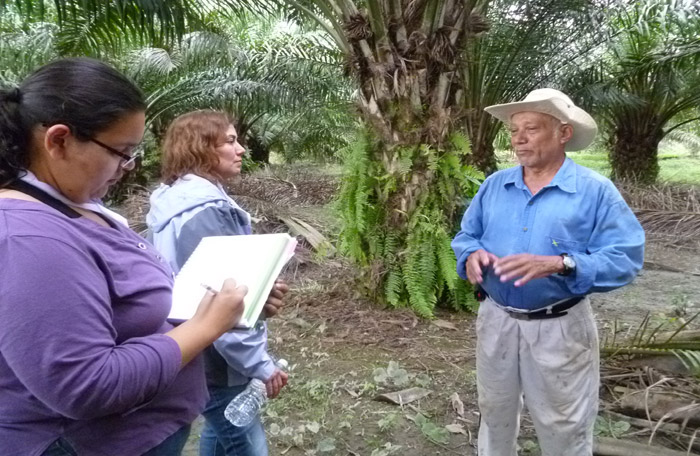CHAIN REACTION
Solidaridad’s partnerships in Central America and Mexico have focused on sustainable social and environmental practices. We aim to promote more efficient agriculture by improving labour conditions, equipment and knowledge of the climate.
Despite challenging market and climatic conditions, there has been a clear shift towards social and environmental sustainability. Producers of all sizes – growing palm oil, sugarcane, livestock, coffee – worked on strengthening their sustainable supply chains.
Skilled, flexible management is essential to ensure that projects achieve the expected result. We help producers develop better monitoring and evaluation procedures and ensure they have sufficient capacity and expertise. A thorough understanding of the process also creates the potential to replicate successful projects elsewhere.
The sustainable use of land and water is an integral feature of all projects, while labour and social issues are increasingly important.
Achievements and partnerships
- Solidaridad has been working to improve labour conditions and reduce child labour in Mexico in cooperation with the ILO-SIMAPRO’s programme, following a similar project in Bolivia. It aims to combine improving labour productivity and labour conditions while reducing the risk of accidents and industrial action.
- Solidaridad Central America has strengthened its strategic partnerships with WWF, SNV and ILO.
- We have made a financial agreement with Henkel and signed a memorandum of understanding with Unilever.
- Pilot projects were launched in sugarcane and livestock in Mexico and Nicaragua.
- The innovative Back (Bringing Agriculture, Carbon and Knowledge) to REDD project in Chiapas, Mexico, has helped coffee farmers become more self-sufficient.
- Networks have been strengthened in palm oil, sugar cane, coffee, cocoa, livestock and gold.
- Solidaridad is expanding to improve our external communications capacity.
We focus on developing pilot projects that can be implemented throughout the sector and have an impact on the whole supply chain.
PALM OIL: BETTER IN THE ROUND
Honduras became the first country in the world to draw up a coherent nationwide plan for implementing the RSPO’s criteria. The process involved public consultations with the private sector, government and civil society. The RSPO guidelines apply to countries producing less than 5% of the world’s palm oil.

Achievements and partnerships:
- A consortium of eight co-operative and corporate Honduran Palm Oil producers (PASH), who are responsible for 80% of palm oil production, have committed to RSPO certification between 2014 and 2016.
- In Guatemala, five mills who produce 30% of the total output have made a commitment to improve labour conditions.
- Solidaridad participates in the RSPO Smallholder Support Fund, a permanent facility financed through RSPO certificate trade revenues.
- Solidaridad’s programme was also supported by Johnson & Johnson, Henkel and Cono Kaasmakers.
